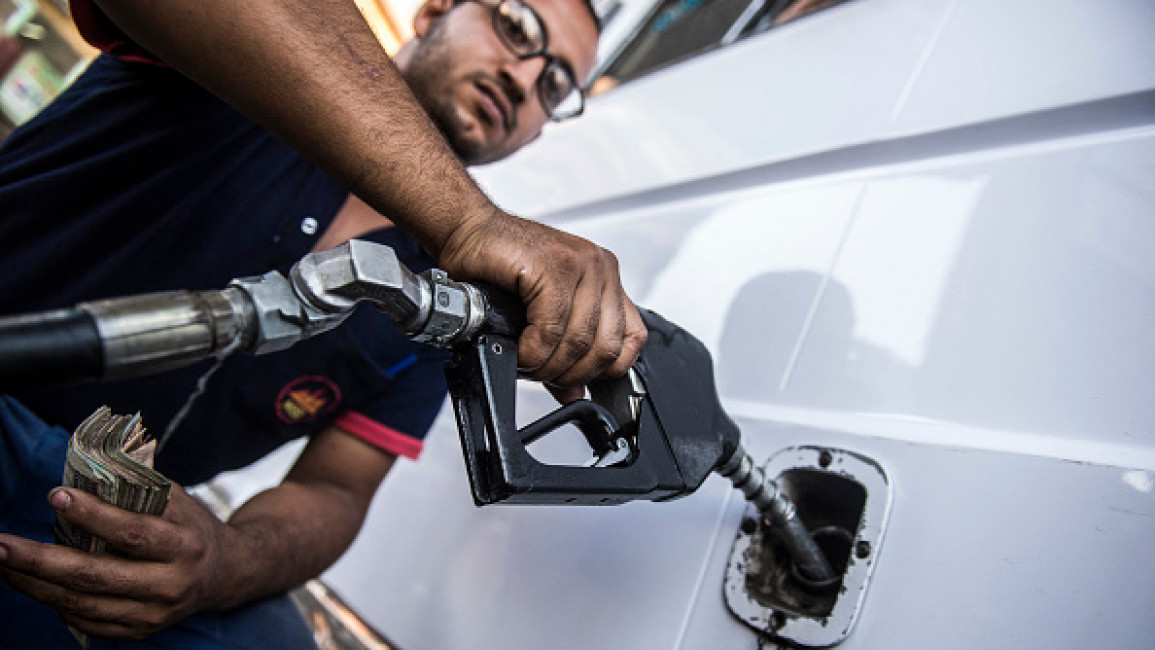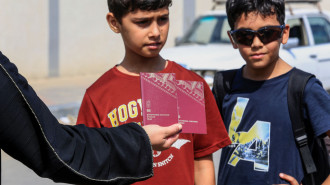'Have mercy on us': Egyptians rage after fuel prices soar by up to 15%
On Thursday, Egyptians expressed much anger towards the government of President Abdel Fattah al-Sisi after a sudden price increase by up to 15 per cent of all types of fuel was imposed, the second controversial move by authorities since March.
The new prices, stipulated by the Ministry of Petroleum and Mineral Resources, as of 6 AM (4 AM GMT), came ahead of a scheduled third review of the expanded US$8 billion loan programme from the International Monetary Fund (IMF), due on 29 July.
Upon completion of the review, Egypt is expected to receive an instalment of about US$820 million.
The IMF deal dictates that Egypt lowers subsidies of petroleum products and food supplies amid, arguably, the toughest economic crisis in the modern history of the country, which has about one-third of its nearly 106 million population under the poverty line.
Egypt was initially expected to benefit from a US$3 billion loan given out over 46 months under the IMF's Extended Fund Facility (EFF), provided the country loosens state and military control over the economy and liberalise the local currency.
But after long negotiations, the international lender raised its loan by US$ 5 billion, shortly after the Central Bank of Egypt had officially imposed a flexible exchange rate of the local currency against the US dollar.
Ordeal augmented
The divisive decision had been preluded by statements of the Prime Minister Mostafa Madbouly during a televised press conference on Wednesday, during which he said the government was expected to gradually raise the prices of fuel to reach a breakeven point by the end of next year.
Egyptians, meanwhile, took to social media platforms to express their growing discontent, as some posted videos of themselves addressing Sisi, asking him to step down,
The hashtags "public transportation" and "the new tariffs" have been trending on social media for hours after many were surprised at the new value of public and private means of transportation.
"Have mercy on us…feel for us…people have had enough," a man shouted, in a video posted on X, filed at a local petrol station, as he addressed Sisi by his older son's name as "Abu Mahmoud" (Mahmoud's father), a popular tradition among simple Egyptians.
Celebrities reacted, too. Renowned Egyptian actor Amr Waked, currently self-exiled outside Egypt, wrote on X, "In Egypt's Sisi, the prices of fuel have been raised 17 times over five years. And still some…fools described the country's state as being stable."
By midday Thursday, the prices of most basic needs, including food supplies, witnessed a sudden rise, adding to the ordeal facing poor and low-income brackets in Egypt, after the value of diesel used by trucks that move supplies has hiked.
One wholesale trader of groceries told The New Arab, on condition of anonymity, that "the prices had already started to increase as of the early morning," while "many sellers and shop owners seized the opportunity and raised the prices of what they had already stored in their warehouses before the new measure."
In May, for the first time since 1988, the government increased the price of subsidised bread, the most strategic commodity in the country, by 400 per cent to reduce what Madouly described as "the increasing financial burden inflicted on the state."
Sisi has repeatedly blamed the current ordeal on several factors, including the 25 January Revolution of 2011, the Russia-Ukraine war and the wars in neighbouring Gaza and Sudan.
Experts, however, believe that severe economic mismanagement played a significant role in Egypt's current predicament, particularly with the government investing billions of dollars in "white elephant" projects, including the New Administrative Capital costing taxpayers about US$60 billion.




 Follow the Middle East's top stories in English at The New Arab on Google News
Follow the Middle East's top stories in English at The New Arab on Google News
![People gathered around the rubble of destroyed houses to search for survivors [Getty]](/sites/default/files/styles/image_330x185/public/2024-11/GettyImages-2184733820.jpg?h=199d8c1f&itok=NiM1LO2f)

